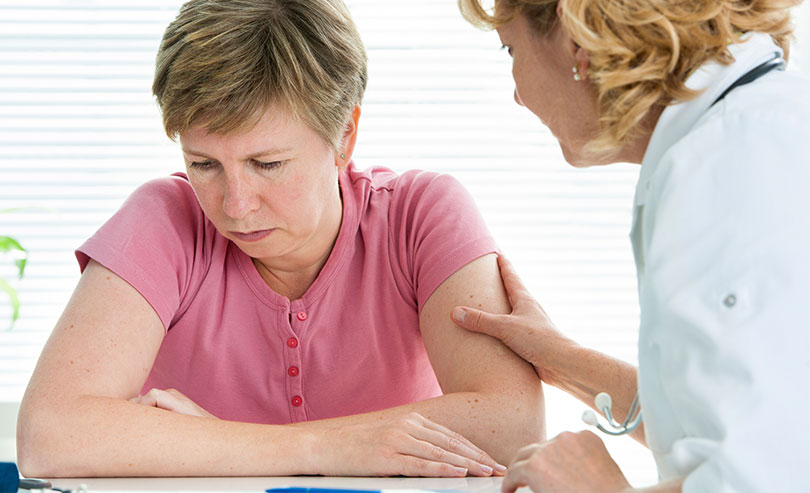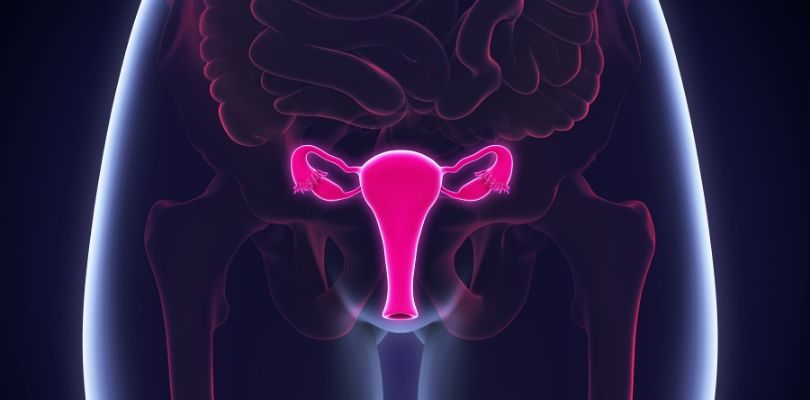Photo Credit: shironosov / istockphoto.com
Coping With Cancer
It’s undeniable. Cancer sucks, and it sucks really bad. That much is clear.
The uncertainty comes when you try to decide what to do with your diagnosis. How are you supposed to react? What are you supposed to do? Maybe more importantly, what are you not supposed to do? You don’t want to create any more issues for yourself, you just want to get through this period of your life as quickly and efficiently as possible.
Your doctors are there to treat the physical symptoms, but it is your task to manage the emotional impact – not a task to be ignored or taken lightly. Since you know your emotional health is intimately connected to your physical health, you know if left untreated your failing emotional health will negatively impact your physical health.
To maximize your quality of life, you have to use positive coping skills to deal with cancer. Here’s how:
Stage One: The Freak Out
By now, you have been inundated with information about what to do with your diagnosis. Hundreds of articles, waiting room pamphlets and blogs will tell you to remain calm and be rational with the news as you conscientiously weigh your choices based on accurate assessment of pros and cons.
But really, the best first step that you can take towards positive coping with your cancer diagnosis is to freak out. Don’t just freak out a little – freak out a lot.
The reason for this is simple. When people try too hard to be calm, practical and rational, they begin to suppress their feelings. Suppression of feelings is bad for several reasons.
The first is that it leads to denial. People who become stuck in denial are never able to effectively process other feelings related to their grief, which keeps them stagnate. Remember that knowing something intellectually is not the same as knowing something emotionally. Both are essential.
The other risk of suppression is that those feelings will come out eventually. You don’t know when or where, but they will. They will be amplified and distorted. And chances are good that you will hurt other people with the emotional shrapnel.
Enjoying a day, a week or a 14-day freak-out helps to ensure that denial is out of the equation. When you are handed bad news, it is natural to react in a strong way. If you work to moderate your freak-out so that there are no choices made that are irreversible, you will be happy you didn’t remain calm.
Stage Two: Self-Care
Let’s say that stage one is tearing down the tower. That means that step two is putting the pieces back together, when you make self-care your priority. Self-care is focused on improving your overall wellbeing, not just one or two aspects of your life.
Begin by listing the facets of your life that you value, including you physical health, your social health, your mental health, your family and your spiritual health.
Separating them helps to conceptualize the idea that all of these pieces need to be in working order for you to be okay. You are a car. Your engine is as important as your wheels, your steering or your brakes. Driving a car without one of those would not be a lot of fun.
Now that you have your list, think about what you are actively doing to improve each area. Notice that the goal is not on maintenance but improvement. People slide into the bad habit of thinking that things will be fine if they stay the same. For you, the status quo is out the window. It cannot be maintained simply by doing the same old behaviors. You must find new passions, new directions and new areas to invest energy.
Cancer changes your life. There is no sense in acting like everything is okay. If this doesn’t make sense, you may need to go back to stage one.
Whether you're in the treatment or recovery process, an ideal diet for bone cancer is important. Here are the foods to consume and avoid with bone cancer.
Your doctors will be handling one part of your physical health, but so much more is up to you. Look at your diet, sleep patterns and level of exercise to assess your starting point. Negative coping skills like overeating, poor sleeping habits and skipping exercise will stifle your progress. Find ways to make these a priority. They will make you feel better physically and help you fight back against cancer.
You already have professionals managing your physical health, so why not have professionals assist with your mental health? If you completed stage one correctly, you will know that coping with cancer is not something you can do alone.
A therapist is a great resource to assess and guide your progression. Chances are good that you have developed some thinking habits that are working against your happiness. These habits allow depression and anxiety set up residence in your brain. Use a therapist to send them packing.
A cancer diagnosis is very similar to a death because of the aspect of loss involved. Therapists can track your grieving and mourning while providing interventions to keep your direction. If nothing else, mental health professionals are fantastic sounding boards to get out your frustrations and stress.
The people in your life are vital to your treatment and your wellbeing. Part of the depression that accompanies a cancer diagnosis is isolation. You begin to cut yourself off from important people in your life. You stop visiting friends, calling family on the phone and may even start avoiding the people in your own house.
Depression sparks isolation, but isolation makes depression even worse. Instead, set dates and keep plans that were previously scheduled. Inevitably people have said to you, “Let me know if you need anything,” to which you can reply: “I need you to drag me out of the house no matter how much I protest.” Don’t allow them to take no for an answer.
Though listed last, your spiritual health is anything but. It is a good example of the interconnectedness of these facets of your life. Many people gain social and mental health benefits from church. Others may get their spiritual boost during a hike in the woods or mindfully sitting on a hilltop.
The anger associated with a cancer diagnosis may have you questioning your previous convictions about God or the world around you. Use this opportunity to reassess and reaffirm your spiritual beliefs.
Stage Three: Caring for Others
Cancer has a way of putting all of the focus on you. The bad news is that when you overly evaluate yourself, you begin to find chinks in your armor. You begin to focus on all of the problems in your life and shrink the positives.
Staying connected to other people helps you to be a well-rounded person. You can feel effective, important and in control of a world that you have lost a lot of control in.
The lives of your loved ones have shifted dramatically, just like yours. They are not going through the same thing as you, but they are sitting on the sidelines watching the situation unfold. They will likely feel uncertain, confused, angry and frustrated.
Let them know that it is okay for them to feel however they’d like. Talk about similarities and differences in your feelings to stay emotionally connected. Always keep in mind that cancer is the enemy.
Remind them that their problems matter. Let them know that their complaints can actually help you as a distraction or a reminder about “normal” life. Who knows, maybe you can even give some advice that can help them feel better. Your cancer can feel so overwhelming that the simple problems of life can feel refreshing and normal.
At the end of the day, your coping is up to you. No one can force you into positive coping. Consider the information above as a way to do your part to improve your life while sticking it to cancer.







